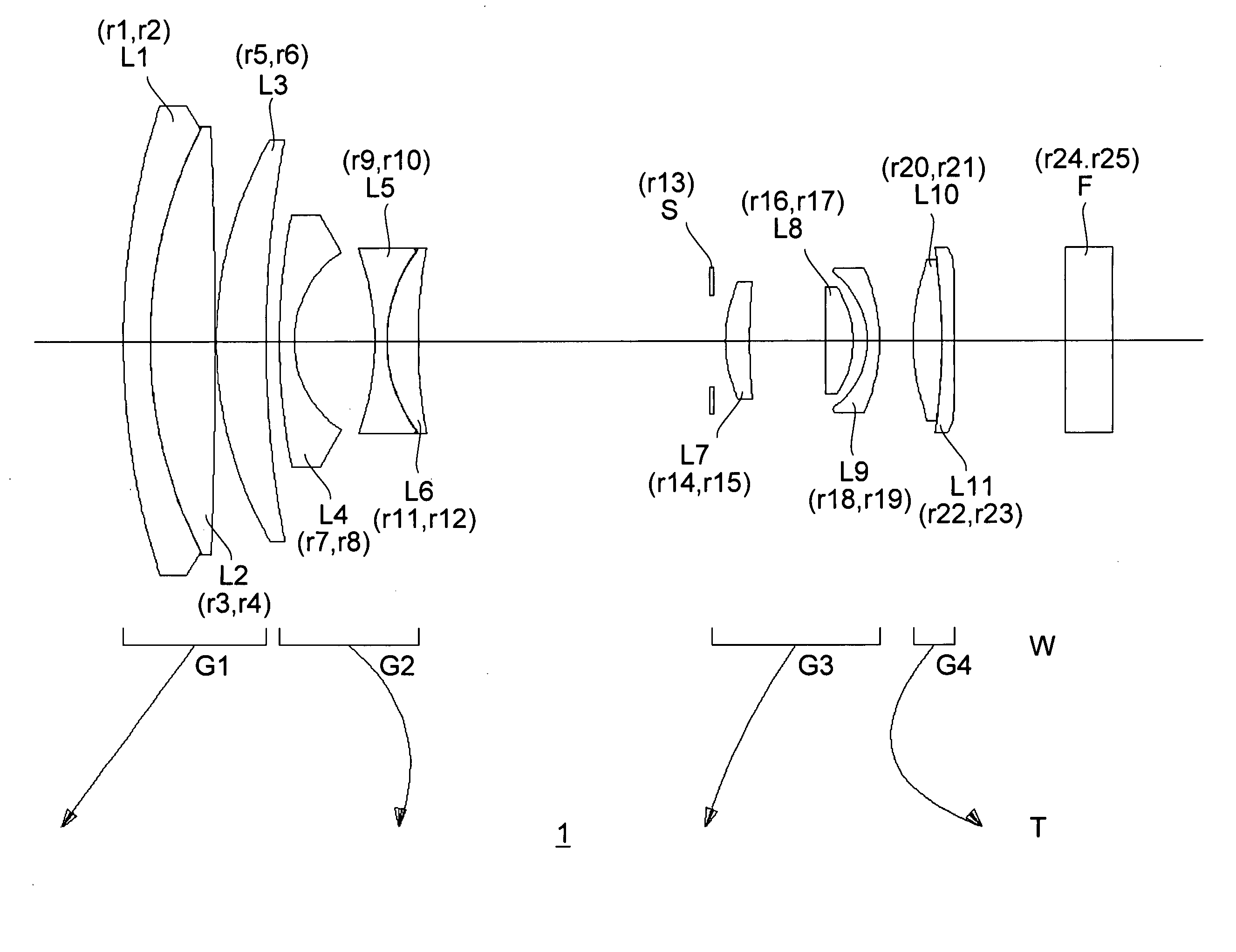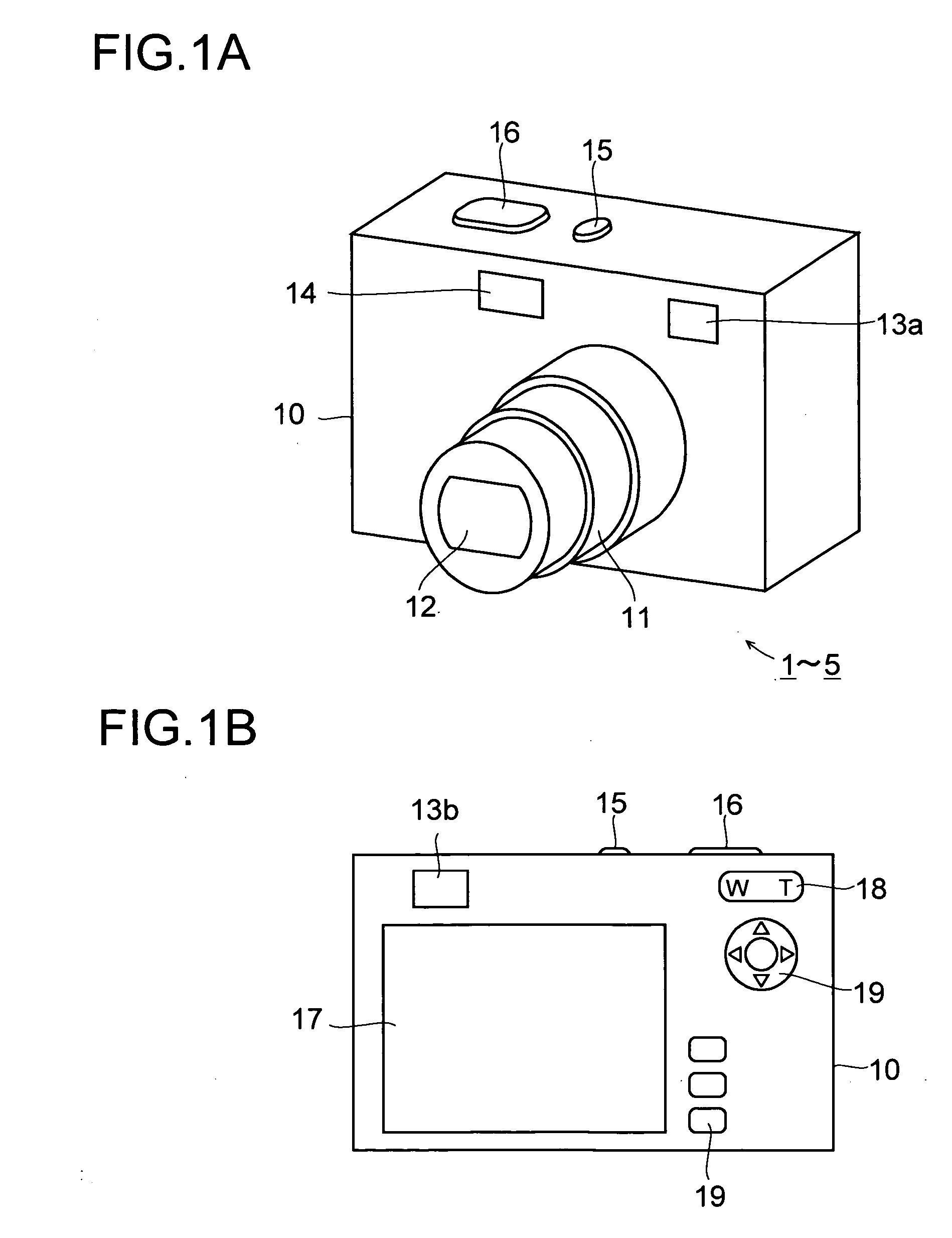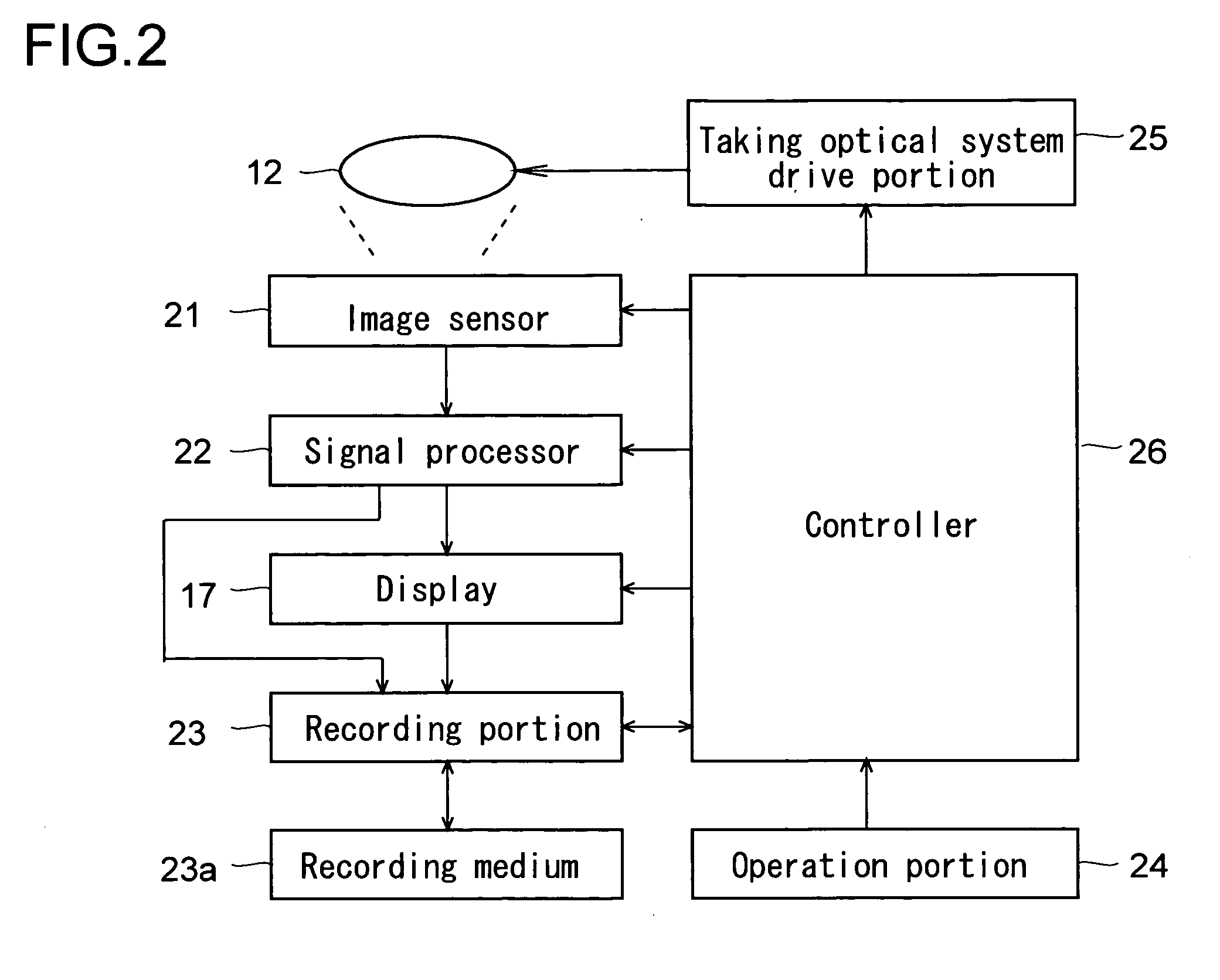Taking optical system and image sensing apparatus
- Summary
- Abstract
- Description
- Claims
- Application Information
AI Technical Summary
Benefits of technology
Problems solved by technology
Method used
Image
Examples
first embodiment
[0045] Hereinafter, embodiments of the present invention will be described with reference to the accompanying drawings. FIGS. 1A and 1B schematically show the external appearance of the digital camera 1 according to the invention. FIG. 1A is a perspective view showing the front and top faces of the digital camera. FIG. 1B is a back view. The digital camera 1 includes a main body 10 and a lens barrel 11 attached to the main body 10. The lens barrel 11 has a plurality of barrel components, and is movable back and forth so that it can project forward when photographing is performed and can be housed in the main body 10 when photographing is not performed. The lens barrel 11 houses and holds a taking optical system 12.
[0046] The taking optical system 12 directs the light coming from the subject to an image sensor 21 (see FIG. 2) housed in the main body 10 so as to image the light on the image sensor 21. The focal length of the taking optical system 12 is variable; that is, the taking op...
second embodiment
[0066]FIG. 5 shows the construction of the taking optical system 12 of the digital camera 2 of a The taking optical system 12 of the digital camera 2 includes, from the subject side, a first lens group G1, a second lens group G2, a third lens group G3, a forth lens group G4, and a fifth lens group G5.
[0067] The first lens group G1 is composed of three lens elements L1, L2, and L3, and has a positive optical power as a whole. The second lens group G2 is composed of three lens elements L4, L5, and L6, and has a negative optical power as a whole. The third lens group G3 is composed of four lens elements L7, L8, L9, and L10, and has a positive optical power as a whole. The forth lens group G4 is composed of two lens elements L11 and L12, and has a positive optical power as a whole. The fifth lens group G5 is composed of one lens element L13, and has a positive optical power.
[0068] Between the second lens group G2 and the third lens group G3 is disposed an aperture stop S. The aperture...
third embodiment
[0077]FIG. 7 shows the construction of the taking optical system 12 of the digital camera 3 of a The taking optical system 12 of the digital camera 3 includes, from the subject side, a first lens group G1, a second lens group G2, a third lens group G3, a forth lens group G4, and a fifth lens group G5.
[0078] The first lens group G1 is composed of three lens elements L1, L2, and L3, and has a positive optical power as a whole. The second lens group G2 is composed of three lens elements L4, L5, and L6, and has a negative optical power as a whole. The third lens group G3 is composed of four lens elements L7, L8, L9, and L10, and has a positive optical power as a whole. The forth lens group G4 is composed of two lens elements L11 and L12, and has a positive optical power as a whole. The fifth lens group G5 is composed of one lens element L13, and has a negative optical power.
[0079] Between the second lens group G2 and the third lens group G3 is disposed an aperture stop S. The aperture...
PUM
 Login to View More
Login to View More Abstract
Description
Claims
Application Information
 Login to View More
Login to View More - R&D
- Intellectual Property
- Life Sciences
- Materials
- Tech Scout
- Unparalleled Data Quality
- Higher Quality Content
- 60% Fewer Hallucinations
Browse by: Latest US Patents, China's latest patents, Technical Efficacy Thesaurus, Application Domain, Technology Topic, Popular Technical Reports.
© 2025 PatSnap. All rights reserved.Legal|Privacy policy|Modern Slavery Act Transparency Statement|Sitemap|About US| Contact US: help@patsnap.com



